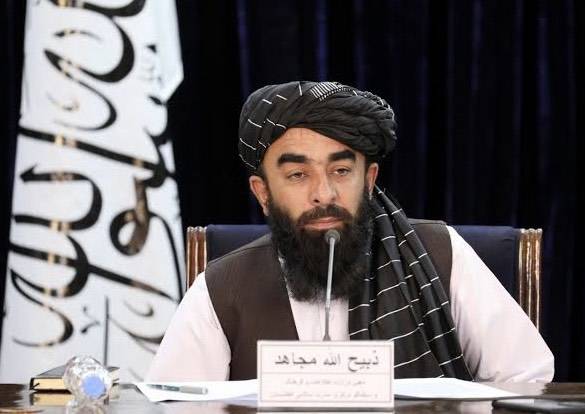Afghan Taliban reacts strongly to Pakistan's decision against Afghan Refugees
Shares

On Wednesday, Zabihullah Mujahid, the spokesperson for the Afghan Taliban, expressed strong disapproval of Pakistan's decision to expel undocumented Afghan nationals and called for a reconsideration of this policy.
This statement came following the Pakistani caretaker government's ultimatum, issued the day before, which required all undocumented immigrants, including Afghan nationals, to depart from Pakistan by October 31 or face potential imprisonment and deportation to their respective countries.
The decision was made during an apex committee meeting led by Prime Minister Anwaarul Haq Kakar, attended by the army chief, among others. The committee also decided to enforce passport and visa requirements for cross-border movement, with electronic Afghan identity cards (e-tazkiras) being accepted only until October 31. After this deadline, authorities would initiate an operation targeting illegal properties and businesses owned by immigrants or those in collaboration with Pakistani nationals.
In a statement posted on the social media platform X (formerly Twitter), in both Urdu and English, Mujahid voiced his discontent with the treatment of Afghan refugees in Pakistan and urged authorities to reevaluate their policy. He emphasized that Afghan refugees should not be held responsible for Pakistan's security issues and suggested that Pakistan should tolerate them as long as they leave the country voluntarily.
As of now, the Pakistani Foreign Office has not issued a statement regarding this matter. According to the latest United Nations figures, approximately 1.3 million Afghans are registered refugees in Pakistan, with an additional 880,000 possessing legal status to remain. However, the government claims that an additional 1.7 million Afghans are residing in Pakistan illegally.
This policy announcement has raised concerns from various quarters. Former PPP senator Farhatullah Babar criticized the government's handling of the refugee situation, suggesting ulterior motives.
The Afghanistan Embassy in Islamabad accused Punjab and Sindh police of conducting a harsh operation against Afghan refugees, even detaining women and children. Amnesty International also criticized the Pakistani government for creating an atmosphere of fear for refugees, and a United Nations official stressed the importance of voluntary refugee return without pressure. This situation unfolds against the backdrop of the state's crackdown on Afghan refugees.
